Course evaluation questionnaires are one of the most common and effective ways for instructors and schools to gather feedback.
The questions themselves are by far the most important part of your questionnaire. The quality and usefulness of the feedback you get depend on the type of questions you ask. They must be clear and easy to read. But they must also encourage students to provide actionable feedback and go further than simply giving yes or no answers.
If you’re a lecturer, it’s time to make unhelpful and uninformative feedback a thing of the past. Here are the top course evaluation questions every instructor should ask.
8 course evaluation questions to ask
1. How prepared was the instructor for each class and the course in general?
Students should have confidence in both your teaching ability and subject knowledge. Few things create a better impression with students than a teacher who is well prepared for each and every class.
It’s not just a case of doing your homework the night before, however. True preparation comes from broad and in-depth subject knowledge. Do your class meetings demonstrate this?
Pro Tip
Ready to learn how to improve your class? Create your own course evaluation form in minutes and get student feedback fast with Jotform!
2. What was your subject knowledge level at the start of the course and the end?
Students will enter your class with different baselines when it comes to their underlying knowledge of the topic. You’ll want them to reach a certain level, but it’s essential to take into account how far each student has actually progressed.
If the majority are either underprepared or overprepared at the start of the course, you may need to adjust the curriculum. The same is true if students aren’t progressing at the rate you want.
3. Did the course materials complement each other and increase your knowledge of the subject?
As a teacher, you invest countless hours in compiling and creating course material. So it’s important to understand whether students found the course material informative and engaging. This question helps you gauge that, and the feedback your students provide may highlight materials that you need to update or scrap altogether.
4. What feedback did the instructor provide during the course? Was it constructive?
Every student needs timely and personal feedback. Objectively assessing your abilities at delivering this feedback is tricky, so it’s important to hear directly from students. Feedback alone isn’t enough, though. You must empower students to improve their learning.
5. How did assignments contribute to your learning and allow you to demonstrate your knowledge?
Much like course materials, exams and other assignments must empower learning. You shouldn’t test for the sake of testing. Assignments and assessments must improve students’ learning and allow them to showcase their knowledge.
The University of Toronto has used this question and others to great effect, according to Pamela Gravestock, Ph.D., who served as the institution’s director of teaching support and faculty development in the faculty of Arts & Science. Students have been “phenomenally receptive” to these kinds of student-centered questions.
6. How many hours did you spend on assignments and studying outside of lectures?
Are your students working as hard as you are? There are two reasons to include this type of question, says Ginger Clark, Ph.D., assistant vice provost for academic and faculty affairs at the University of Southern California.
First, they help professors understand how their students learn so that they can tailor classes and assignments going forward. Second, they demonstrate to students that their learning isn’t up to the professor’s efforts alone. Their own contribution also plays a big role in their success.
7. What did you take away from the course?
Annelise Heinz, Ph.D., assistant professor of history at the University of Oregon, uses this question at the end of every course she teaches. She also asks students what they learned about themselves and what advice they would give to other students.
“As I explain to my students, this metacognitive process helps clarify and solidify their own learning and provides me with an invaluable window into their experiences, including their frustrations, in a framework oriented toward growth more than judgment. Consider other important moments for reflection, such as at the end of a writing process,” she writes.
8. Would you recommend this course to other students?
While open-ended questions are essential for generating deep and insightful feedback, it can also be helpful to provide students with a binary way of stating whether they liked the course or not. Although you shouldn’t take answers to this question and others like it in isolation, they can be a helpful way to spot red flags. If students aren’t willing to recommend the course to others, then it’s necessary to make immediate improvements.

Collecting student feedback is easy with Jotform
Asking the right questions is just one part of the feedback equation. You also need to have a fast and efficient way to collect the data. With our free sample course evaluation form, teachers and lecturers can create and customize feedback forms for their classrooms without doing any coding. You can embed the form in a website or email it to students. Your Jotform account stores submissions securely, and you can easily access them on any device.
Image by: Glenn Carstens-Peters
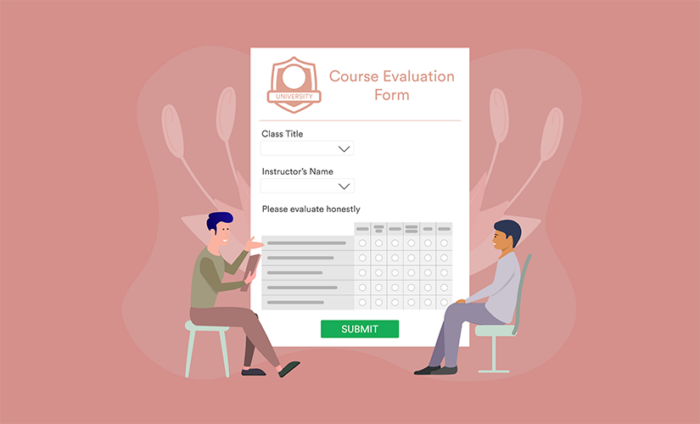













































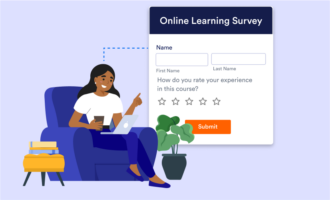


















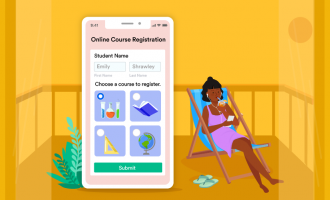



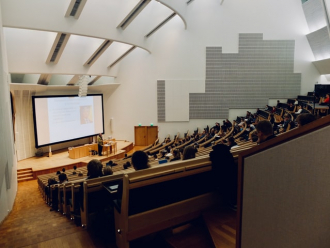



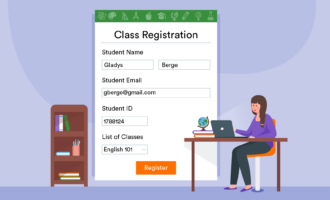


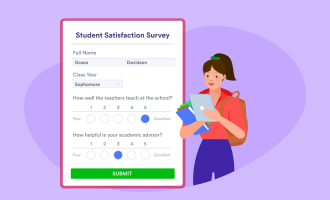





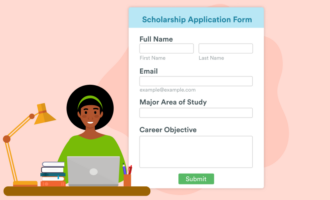
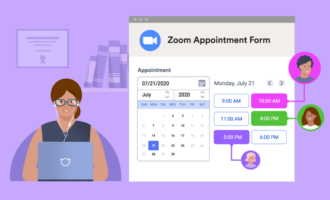



















Send Comment: